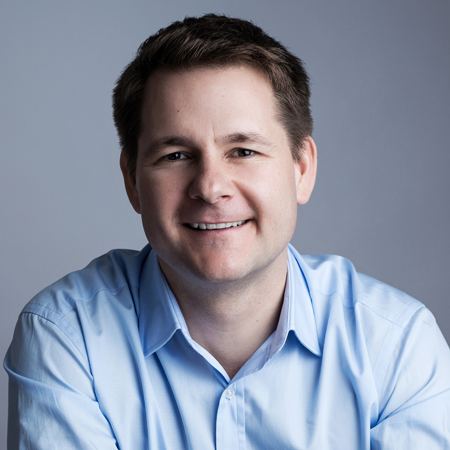You’re like me.
There are things you promise yourself you’ll do, but for some reason they don’t get done.
For example, you might plan to wake up early and exercise, but then you hit the snooze button one too many times before oversleeping.
No problem, you’ll exercise tomorrow.
Of course, that never happens.
Sound familiar?
According to Psychology Today’s Christine L. Carter, what we require is willpower.
She says, “Once we get in the habit of exercising or of staying calm in the face of a toddler meltdown, or not checking our email after five o’clock, or of doing anything else we want to have the resolve to do, we don’t need to try so hard. But for now, because we are in the habit of pushing snooze, or yelling, or checking email compulsively all evening - we need self-discipline.”
Here are Christine’s five keys for strengthening your willpower:
1. Get enough sleep
That’s seven to eight hours for adults, at least nine for teens, or 10 to 12 for elementary and middle school kids.
Sleep deprivation makes us susceptible to temptations, like Facebook and that chocolate covered cookie over there, for physiological reasons. Self-control takes a ton of brain power, and when we are tired, our bodies don’t tend to deliver enough glucose to our brain for it to get the willpower engine going.
2. Meditate for five minutes a day
Sit up straight and focus your attention on your breath. When your mind wanders, as it will, you’ll be building willpower when you simply notice that your mind has wandered and you bring your attention back to your breath.
As Kelly McGonigal notes in her awesome book The Willpower Instinct, the worse you are at meditation, the better it is as an exercise for building self-control. Here’s why: In order to check your impulsive tendency to snag that donut off the counter, you need to build self-awareness.
When you are aware of what you are doing (e.g., “I’m feeling tempted to scarf that down.”), you’re actually engaging the part of your brain you need for willpower, rather than letting your impulses take over.
Meditation gives you practice at engaging your self-awareness; as a bonus, deep slow breathing also helps strengthen your self-control.
3. Lay off the cocktails
Science of the blazingly obvious, I know, but face it: We often have a glass of wine right before we need willpower to make healthy choices at dinner. Alcohol lowers your blood glucose, which a series of studies shows can dramatically weaken your willpower. (You’d be better off drinking sugary soda before testing your will, although I’m not actually recommending that.)
Alcohol also reduces self-awareness, and it is self-awareness that we need most to bring us back to our goals (see #2 and #5).
4. Make a plan for dealing with the temptations you will face
What will you do when things go wrong?
Don’t leave your answer to chance or your whims; instead, write out a plan, however simple.
If you are trying to stop snapping at your children when they’re running late, make a plan for what you’ll do when they’re dawdling and you are in a big, big hurry.
Write out what you’ll do instead of yelling—e.g., take deep breaths, walk away from the car, etc.
If you do blow it? Forgive yourself and move on. You are only human, and judging yourself as a bad parent or lazy slob will make you less likely to meet your goals, and more likely to give into your impulses.
5. Remind yourself why you are doing what you are doing, and what you will lose if you give up
Why are you trying to start your new habit or quit your old one?
Be honest as you do this; remind yourself what you really want, rather than what you think you should want.
For example, I could tell myself, or my neighbours, that I’m exercising more because I want to be a good role model for my children (what I should want). But what I really want even more than that is to fit into my jeans and feel healthy. Research suggests that these less moralistic motives tend to be more effective.
So ask yourself, frequently: How do you want to feel? Then visualize what you will lose if you give in to temptation.
Thank you Christine for the great suggestions.
Actually, our co-founder, Debbie Roberts has some thoughts on willpower too.
Here’s what she wrote on her blog.
I’m reading a book called 'The Willpower Instinct' by Kelly McGonigal and it’s fascinating.
She says there are three powers that make up willpower:
“I will” power
“I won’t” power
“I want” power
The first two you’ve probably used often. “I will” power is the ability to say yes when you need to say yes, e.g. I will walk every day and eat healthy. “I won’t” power is the ability to say no when you need to say no, e.g. I won’t eat that cake. But she goes onto say that those two powers are not enough. You need a third power and she calls it the “I want” power. The “I want” power will give you the motivation to stick to your goals and avoid the temptation of procrastination.
Kelly says that “To exert self control you need to find your motivation when it matters. Willpower is about harnessing the three powers of I will, I won’t and I want to help you achieve your goals”.
What I love about this book is that not only does Kelly explain the science of willpower, she also gives practical exercises for you to do to strengthen your willpower muscle.
So what is your vision (your “I want”) for yourself, your family and your business that is big enough to withstand the onslaught of temptations and distractions this year?
What’s big enough to keep you on track?
Thanks Debbie for sharing.
So, what will you do about your willpower today?
Imagine how productive and happy you’d be with your life and bookkeeping business if you strengthen your willpower.
It won’t happen unless you commit to it.
So, what are you waiting for?
To your success,
Michael

Article by Michael Palmer
Michael is the Head of Community for Pure Bookkeeping, the host of The Successful Bookkeeper podcast, and an acclaimed business coach who has helped hundreds of bookkeepers worldwide overcome their fears, exponentially grow their businesses, and achieve the quality of life they've always wanted.
Subscribe Now
Recent Posts
- From Best Practice to Real Practice: Building a Better Bookkeeping Business
- Jumping Off the Cliff — and Why Entrepreneurs Need Systems to Fly
- Overcoming Overwork and Juggling Client Work with Business Admin
- The Scalable Bookkeeping Practice: Hiring, Delegation, and Growth Hacks
- The Future of Bookkeeping: How AI and Automation Save You Hours Each Week




